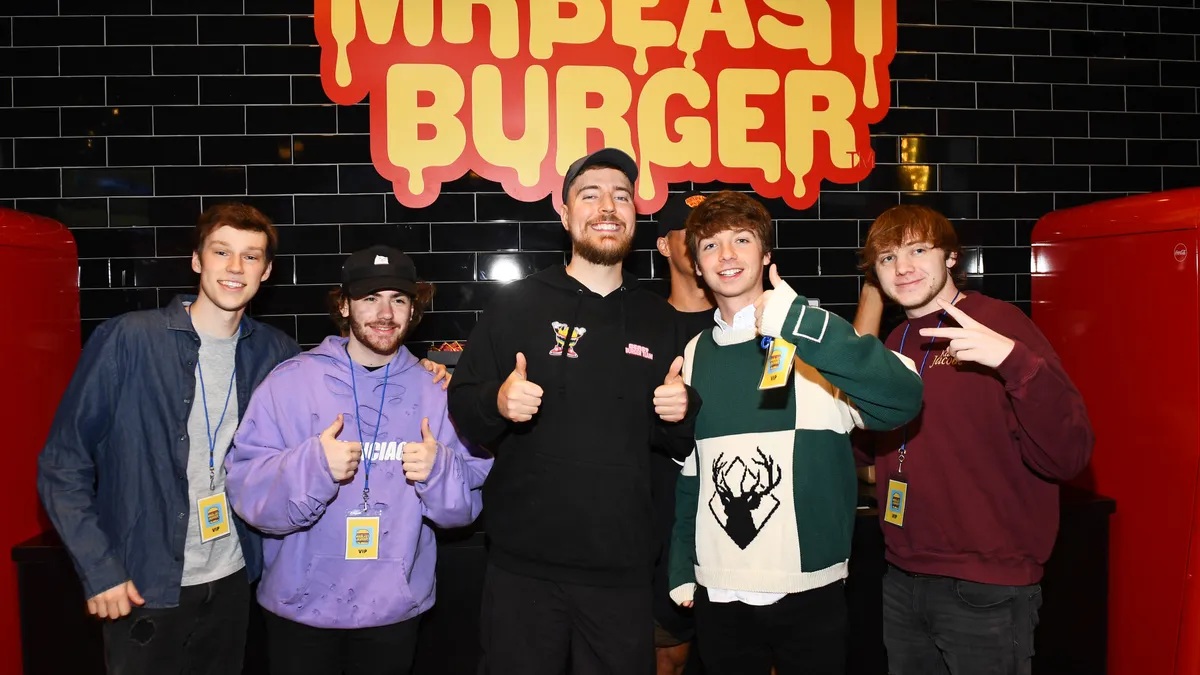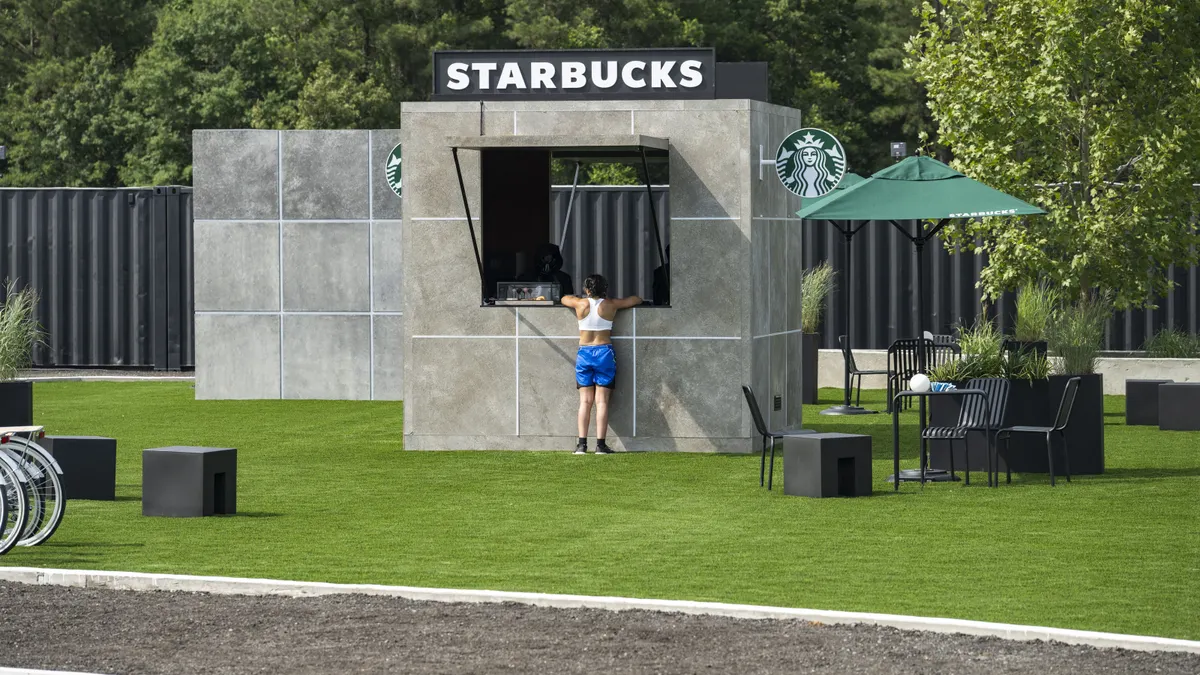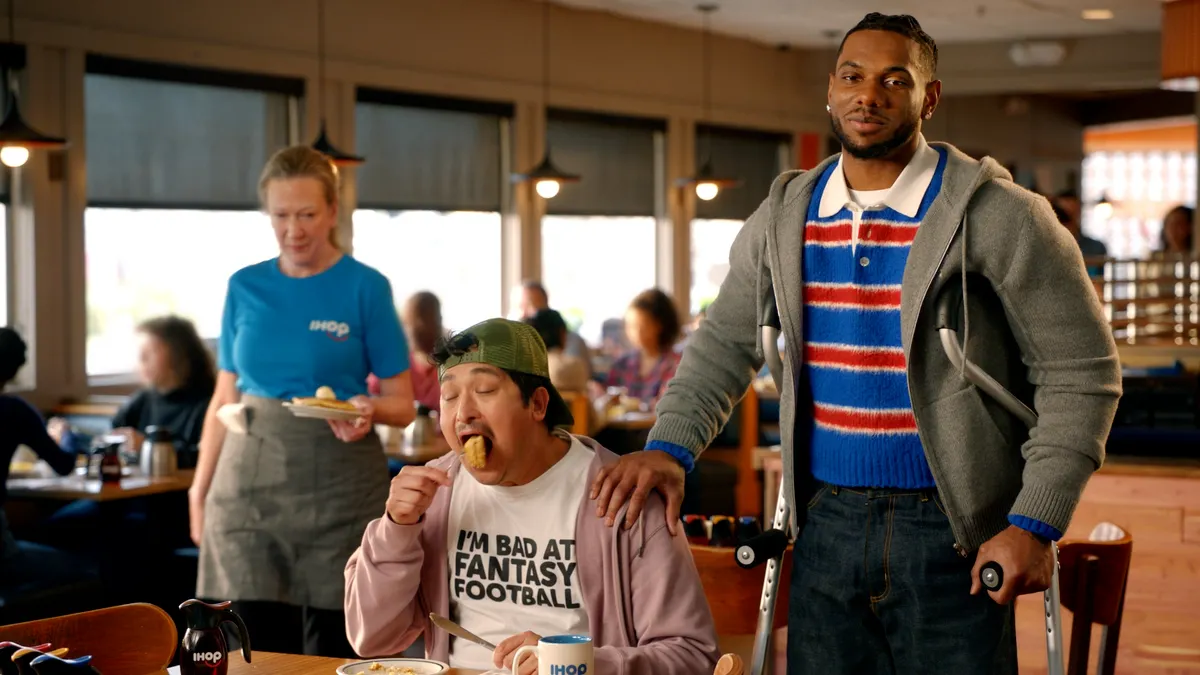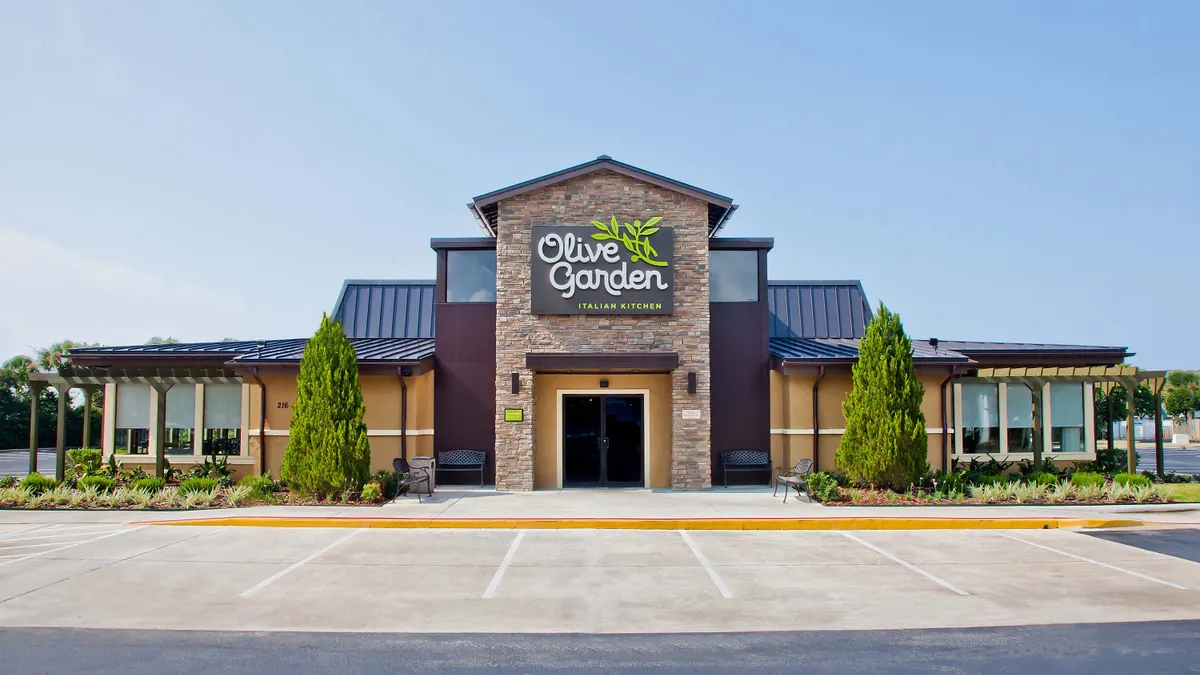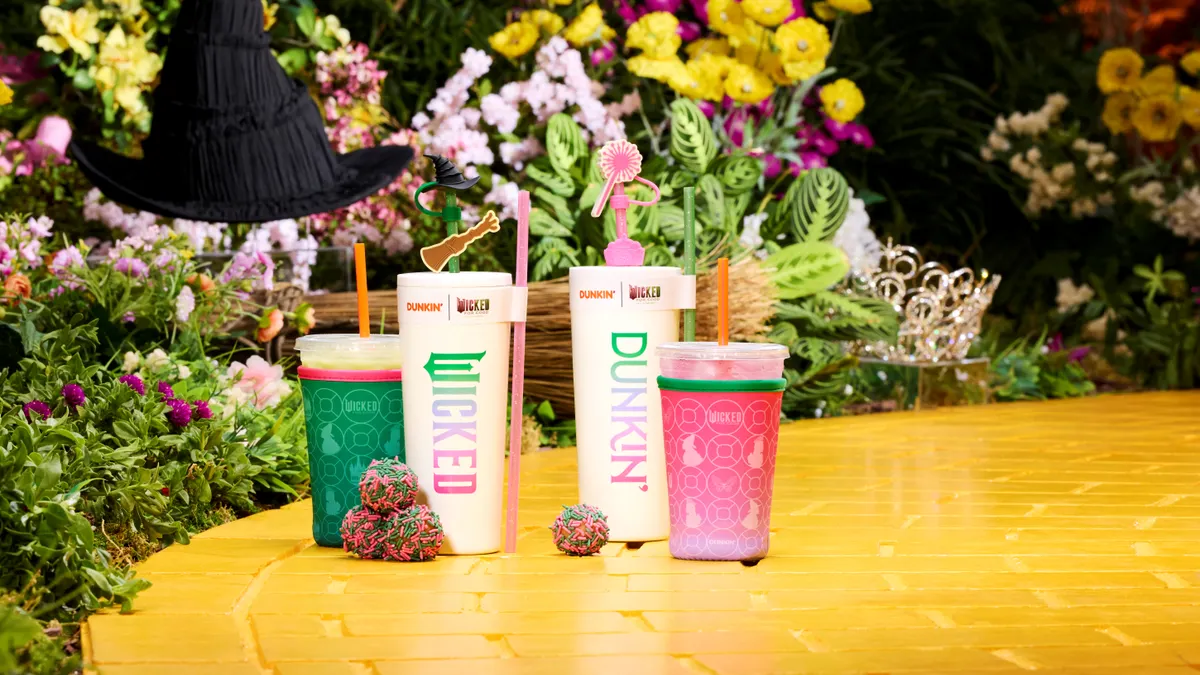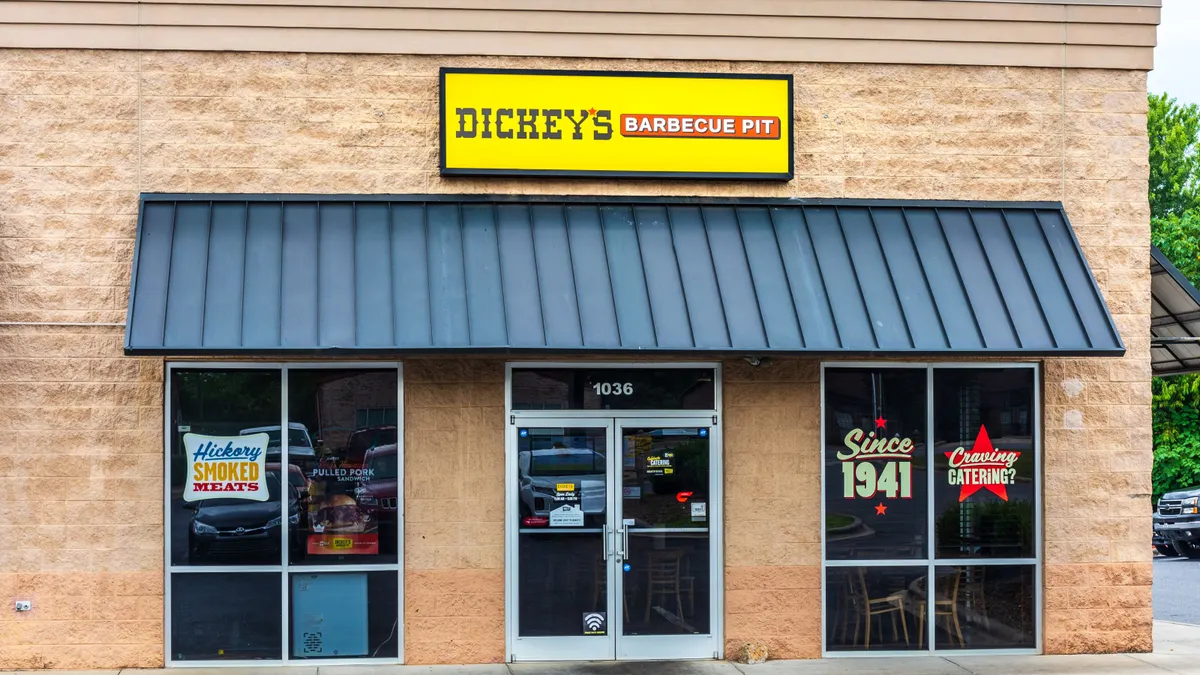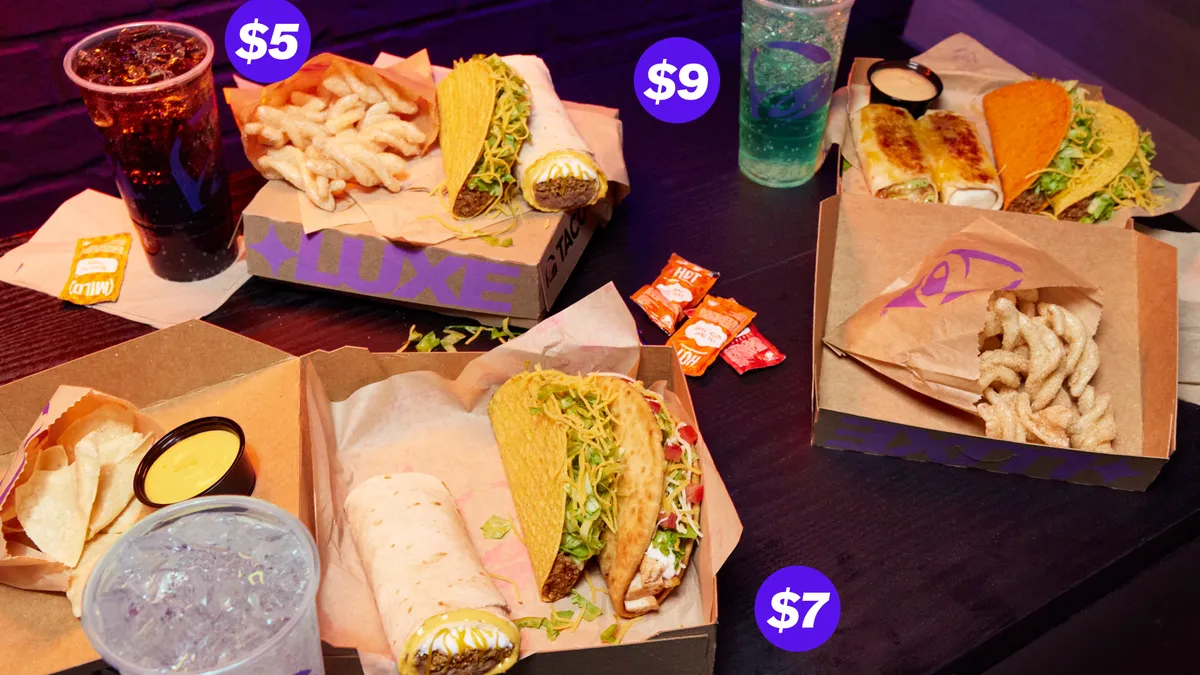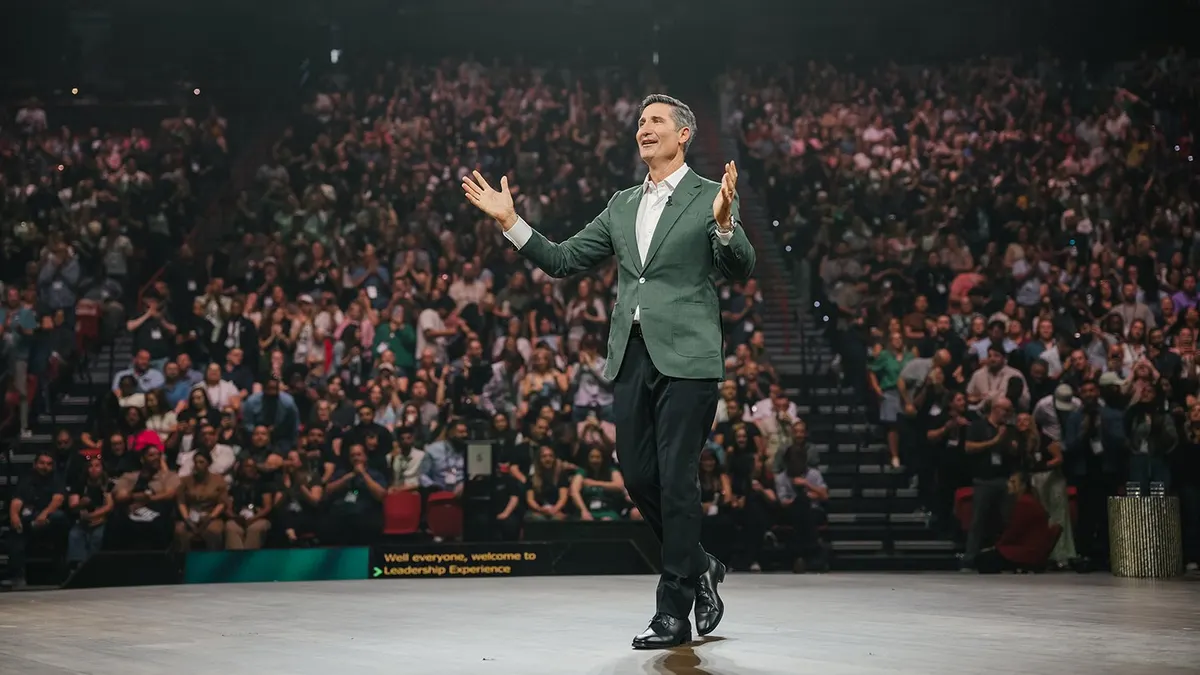Celebrity virtual restaurant brands like MrBeast Burger, a concept backed by mega-famous YouTuber Jimmy Donaldson, exploded in popularity throughout the pandemic. Now, liabilities to both operators and stars are eclipsing initial success.
On paper, the concept of a celebrity virtual brand looks like an easy win for all involved. For operators, brands affiliated with major actors, musicians and internet personalities make it possible to attract an audience fast — even on crowded delivery marketplaces. For celebrities, these brands offer the chance to gain a new income stream, grow their fan bases and deepen the loyalty of existing audiences.
But if a celebrity virtual brand does manage to become a viral internet sensation, this spike in demand can incur reputational risk. When celebrities launch promotions or draw considerable attention to their brands, a subsequent surge in orders may impinge on core operations and hurt speed of service or product quality, said Kristen Barnett, co-founder and CEO of Culinary Creators Worldwide, a marketing agency that partners with content creators looking for opportunities in the food and beverage industry.
The reverse is also true, she said. If customers turn on a celebrity, they can turn on the virtual brand, and associated operators.
“If [operators] have some big partnership with a celebrity and they come to depend on the sales and then this celebrity suddenly says some crazy racist comments or gets canceled, you’re going to see potential negative sales versus your past expectations,” Barnett said.
Rishi Nigam, CEO of Franklin Junction, which connects virtual brands with restaurant operators, echoed this sentiment.
“There are pros and cons to working with celebrities,” Nigam said. “The pro is that they have a giant megaphone, and the con is that they have a giant megaphone.”
The high-profile implosion of Donaldson’s relationship with partner Virtual Dining Concepts over MrBeast Burger’s product quality, and the subsequent dueling lawsuits between the YouTuber and virtual brand platform, spotlights just how risky celebrity brands can be.
The MrBeast Burger saga may damage the willingness of celebrities to embrace virtual brands, in part because Donaldson, who goes by MrBeast, is such a massive figure. The scale of MrBeast’s audience is difficult to convey: he had 212 million YouTube subscribers as of Monday, Nov. 20, and his videos routinely rack up more than 100 million views. If his subscriber base was a country it would have the eighth largest population in the world — a level of popularity that has proven a double-edged sword in the case of MrBeast Burger.
“Honestly, the only one that ever had a chance was MrBeast,” Nigam said. “[The situation is] going to scare away a lot of other good celebrities from ever doing this for quite some time.”
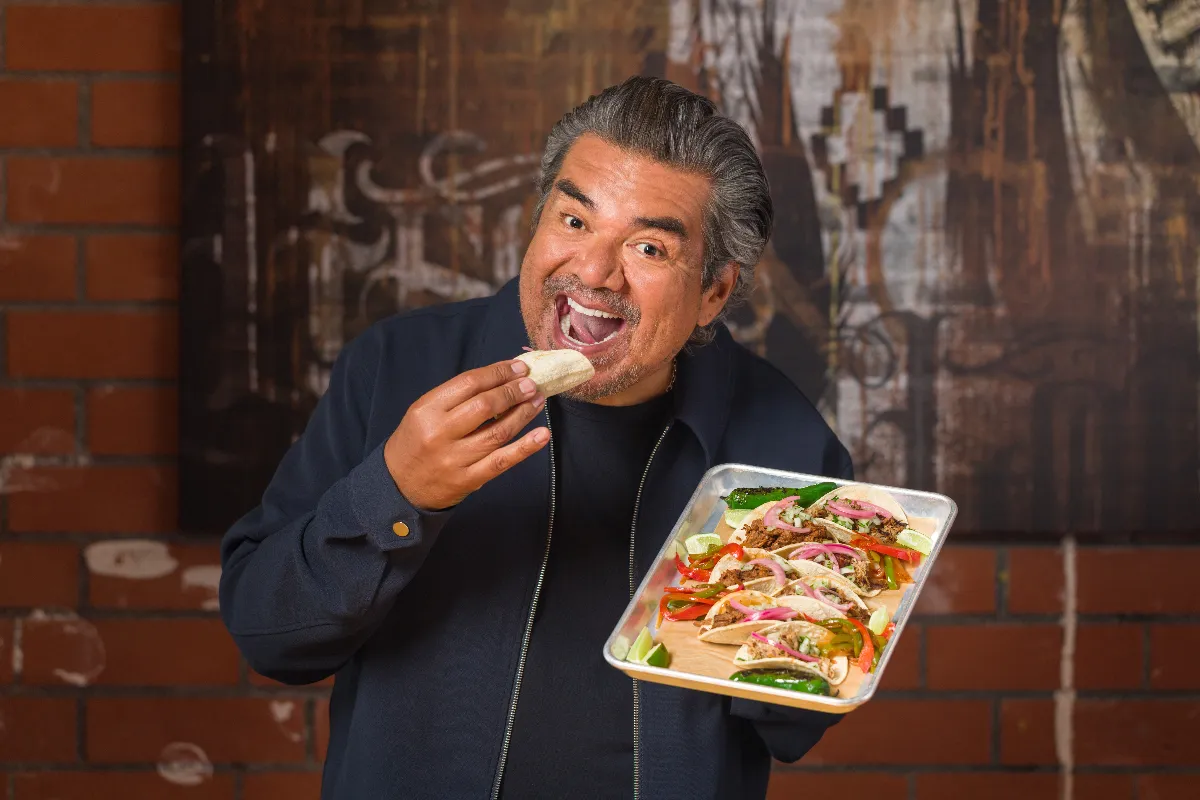
Virtual success hinges on execution
The unique attachment consumers have to food products poses a special brand risk that virtual brand operators need to anticipate, Nigam said.
“People are very, very emotional about their food, and have a lot of options,” Nigam said. “The investment of time and money in food, especially for delivery or pickup, creates specific expectations for consumers.”
“That's why loyalty is so tough to build in restaurants and so easy to lose,” Nigam said. “And if you're a celebrity that can just carry over to your entire platform. You do have a lot more to lose than just a burger.”
Nigam said virtual brands require as much care as any other restaurant brand to be successful in the long run, which may run contrary to some operator expectations.
This need for close management is reflected by the ongoing litigation between MrBeast and VDC, which accuse each other of damage to the virtual burger brand.
In a New York lawsuit filed by MrBeast against Virtual Dining Concepts, lawyers for the aggrieved influencer quote one customer review describing MrBeast Burger as “likely the worst burger I have ever had,” and another customer who said his order was largely raw meat. Donaldson complained about VDC’s management and product quality on social media in a series of deleted posts, and claimed he tried to cut ties with the concept but was unable to.
VDC responded with a suit of its own, claiming “of the 2 million orders placed on DoorDash and Uber Eats alone, almost 70% of customer reviews included 5-star ratings.” VDC also argued that Donaldson’s negative public statements have put the brand in jeopardy.
“Fundamentally, there does not exist the [needed] level of control over execution of the food. That’s probably the number one barrier to building a brand with meaning,” Barnett said.
“There are pros and cons to working with celebrities. The pro is that they have a giant megaphone, and the con is that they have a giant megaphone.”

Rishi Nigam
CEO, Franklin Junction
That trouble with execution, according to Barnett, eventually became a brand risk for MrBeast, as inconsistent results can alienate customers.
“When you're building [virtual brands], it's almost like building a new business and a new brand from scratch,” Nigam said.
Part of that effort means having a clear sense of the business goals for the virtual brand, especially concerning the concept’s life cycle, which informs menu and promotion strategy.
“Is the idea to do something gimmicky? I'm not saying there's anything wrong with gimmicky, I'm just saying we should call a spade a spade,” he said. “So we know whether this was meant to be a viral three-month or six-month thing or is meant to have a longer-term strategy.”
Recent problems in the space extend beyond MrBeast Burger. Over the last year, Barnett said, a number of virtual brand companies have run into trouble.
“Many of these companies that are part of the [virtual brand] boom and fed into it raised money at hyper-inflated valuations, applying a tech multiple to what is fundamentally a non-tech type of revenue: the actual sales of food,” Barnett said.
Those companies have largely retreated from initial virtual brand models, which relied on selling food for delivery that is prepared using excess kitchen capacity at brick-and-mortar restaurants licensing the brands from platforms, Barnett said.
Virtual brand platform C3 is focusing more on brick-and-mortar food hall developments. Even C3’s announcement that it was partnering with TGI Fridays to serve one brand, Krispy Rice, from 140 stores was a retreat from its 2022 claims. At that time, the company said it would serve three brands from Fridays’ stores. In total, according to TGI Fridays’ 2023 franchise disclosure document, Fridays paid C3 $120,000 in royalties in 2022. Nextbite laid off staff and was acquired by C3 this summer.
“The space, quite frankly, was wildly overhyped through the pandemic,” Barnett said.
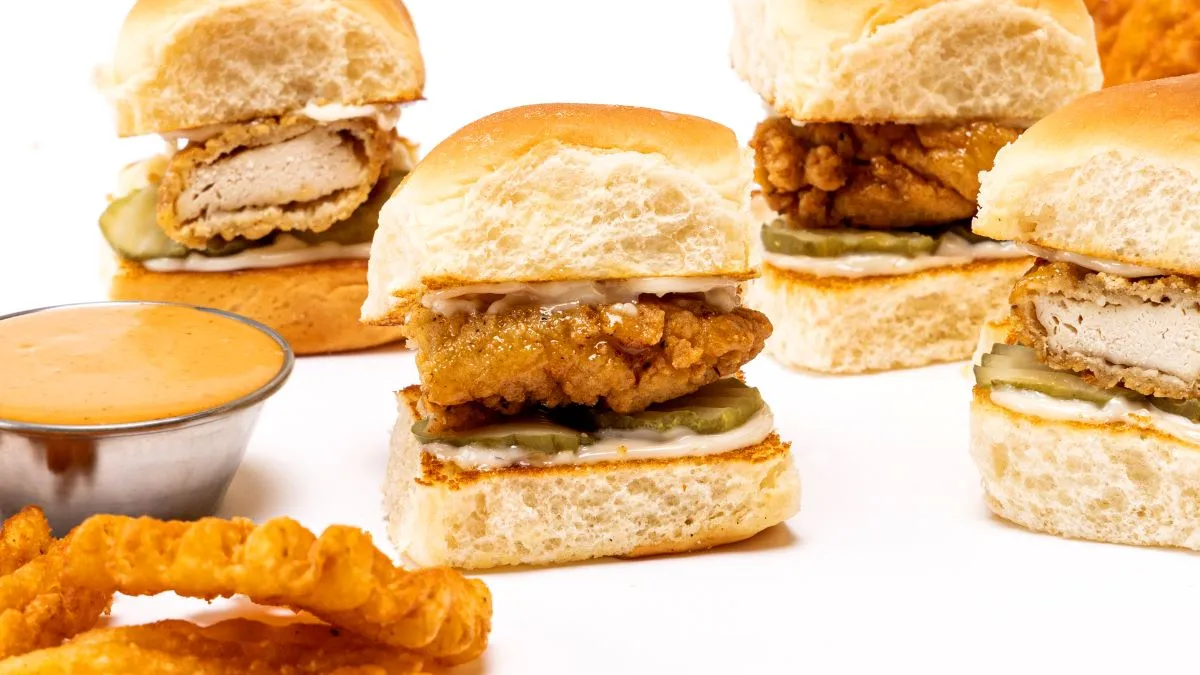
A case study in rewards
It’s unclear how profitable celebrity-backed virtual brands are. Major chains have largely declined to share performance metrics on earnings calls or in reporter interviews. There’s also an incentive for virtual brand platforms to exaggerate the impact of their products to spur restaurant operator adoption, which may further muddy an outlook of the space.
Restaurant Dive looked to Red Robin, however, as a case study of celebrity virtual brand deployment. Red Robin was one of the largest brands serving MrBeast Burger, and had offered the brand’s items from an unknown number of stores since at least early 2021. In June, the 508-unit chain stopped serving the brand as part of a broader retreat from virtual brands, which Red Robin framed as a shift to refocus on core menu items.
But on the company’s Q2 earnings call, an analyst asked Red Robin CEO GJ Hart if the virtual brands — particularly MrBeast Burger — were profitable.
“It's nowhere near as profitable as our regular business at all. And in fact, that whole business over time has become even more complex and the margins continue to deteriorate in terms of what their expectations were,” Hart said.
Red Robin trimmed its estimated comparable restaurant revenue, a measure similar to same-store sales, from between 2% and 4% to between 1% and 3%, a decrease of 100 basis points, “primarily due to the elimination of the MrBeast virtual brand.”
Restaurant Dive used this statistic to generate a rough estimate of the maximum amount of annualized sales MrBeast Burger might have generated at Red Robin.
- In 2022, per Red Robin’s 10-K, the company’s 414 company-owned restaurants accounted for $1,230,318,000 in revenue, or about $2,970,000 per store.
- The cut to projected restaurant revenue attributed to MrBeast Burger by Hart was about 1% of 2022 revenue, or roughly $30,000 per store.
- Assuming little difference between 2022 sales and 2023 projections, if all 414 company-owned Red Robins served MrBeast Burger, a possible estimate for the annual value of the sales of MrBeast Burger at Red Robin is about $12 million.
- If the 97 franchised units Red Robin also sold MrBeast Burger in comparable volumes, the virtual brand may have driven roughly $15 million in sales across Red Robin’s entire system.
- At one point, MrBeast Burger was sold through some 2,000 restaurants, though which types of restaurants worked with the brand is unclear.
- If Restaurant Dive’s estimate for MrBeast Burger’s sales at Red Robin are similar to those at other restaurants, MrBeast Burger might’ve seen its annualized sales at about $60 million. According to Nation’s Restaurant News, Donaldson claimed the brand accounted for $100 million in sales between Dec. 2020 and July 2022. Subsequent sales are unclear, as is the number of restaurants serving MrBeast Burger at any given time, making it difficult to gauge a per-unit estimate of revenue. But $100 million across 19 months is roughly in line with a $60 million annualized sales estimate.
Red Robin did not respond to a request for comment on the number of stores that sold MrBeast Burger, and declined to comment on Restaurant Dive’s estimates. It’s unclear how big of a cut VDC would have taken from that revenue as the developer of the brand. Red Robin hasn’t commented on the structure of its deal with VDC.
Several other brands that worked with MrBeast Burger also declined to comment on sales numbers and the structure of their deals with VDC.
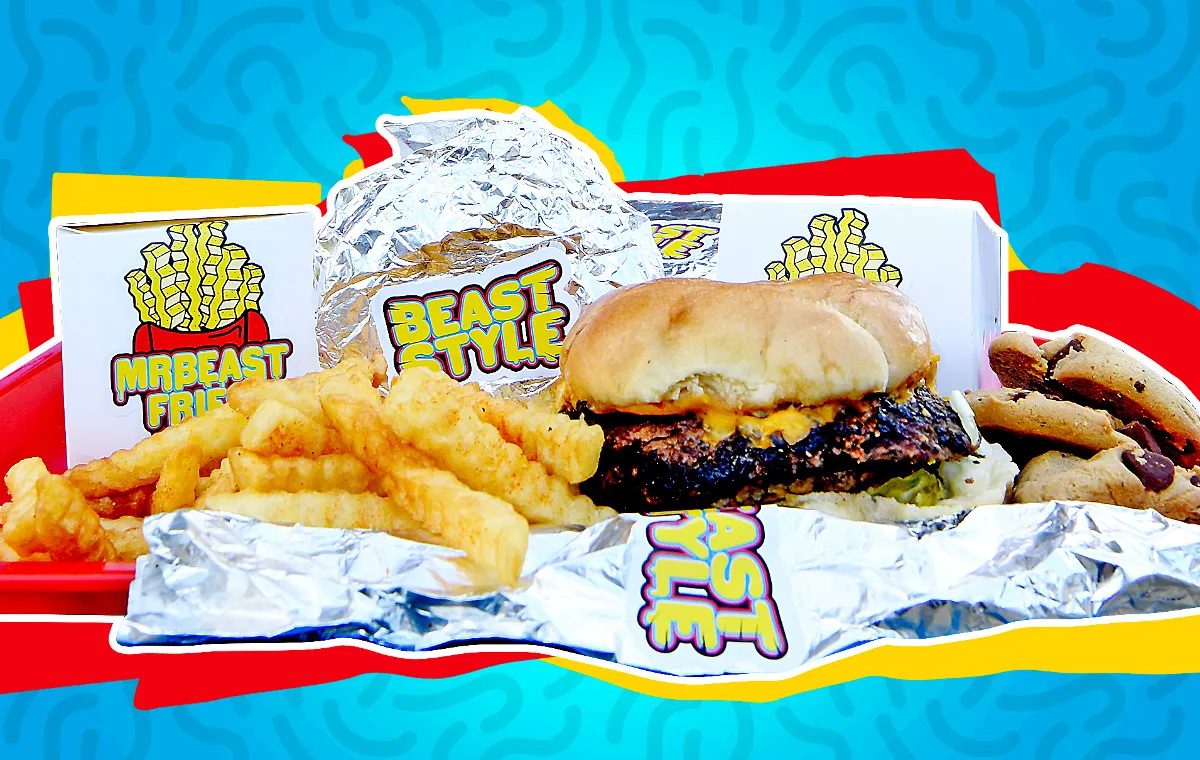
Phase two of the celebrity virtual brand may be ahead
The virtual brand market will likely see a dynamic similar to that experienced by direct-to-consumer brands over the last decade and a half, Barnett said. That space had shifted gradually from an online-first strategy facilitated by cheap social media advertising toward a model that includes selling wholesale to retailers or through stores, alongside that DTC presence.
In short, the shift has been omnichannel. Restaurant brands also shifted to embrace a digital focus, especially during the first year of the COVID-19 pandemic.
“It was really easy to create a good brand with relatively nice branding, put it on DoorDash and really capture the overall growth towards delivery,” Barnett said. “And now the same thing has happened. [The space] is more crowded, it's more expensive. And your strategy needs to be a lot more robust if you're actually going to win in terms of customer acquisition and product.”
Nigam agreed, and noted that digital marketing has become less effective for virtual brands over time.
“When we started doing digital marketing and delivery four or five years ago there was an eight to 10 times return on marketing ad spend,” Nigam said. “Now that number is down to three, four or five, and if you're really good six.”
“The space, quite frankly, was wildly overhyped through the pandemic.”

Kristen Barnett
Co-founder and CEO, Culinary Creators Worldwide
Some virtual brands, like Moonbowls, which was developed by a brand platform called Salted, have made the jump to having a brick-and-mortar presence, Barnett said. Moonbowls opened a flagship, physical store in Chicago in 2022. Likewise, Brinker brought the brand Its Just Wings into its Chili’s restaurants to stimulate bar traffic. MrBeast Burger launched one physical location too, but it’s not clear if it has grown. The first location is still listed as open on the website for the mall hosting it.
While many celebrity virtual brands are still taking orders — Wiz Khalifa’s brand Packed Bowls appears to offer delivery from roughly 30 locations on DoorDash — others, like Guy Fieri’s Guy’s Flavortown Kitchen, no longer seem to have functioning websites. Other brands, like DJ Khaled’s Another Wing, which last posted on social media in 2022, have stopped promoting themselves on social media.
Partnerships with celebrities tend to work best, Nigam said, when they have clearly defined goals, whether that’s to serve as an LTO or open a set number of restaurants in a region the celebrity genuinely cares about. Nigam said there is still room for celebrity virtual brands that work with skilled operators, have a solid value proposition and can communicate brand identity clearly to customers.
One possible avenue toward brand growth, Nigam said, is for celebrities to partner with brands on specific menu items, which insulates both celebrities and brands from the potential failure of whole menus.
“I'm very bullish on it,” Nigam said. “I don't anticipate that it's over by any means. I just think Chapter One is over, we learned a lot.”
“When [customers] see their favorite celebrity selling food, they're still impulsively going to want to buy it.”



